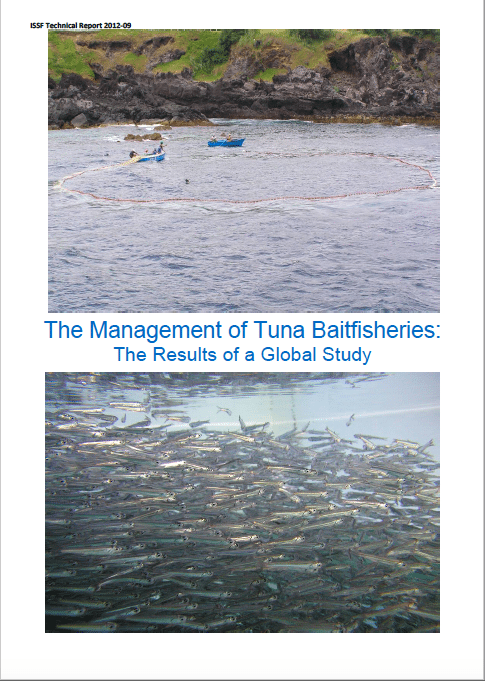Document: ISSF 2012-09: Global Study on the Management of Tuna Baitfisheries
Pole-and-line tuna fishing is generally recognized as having many positive characteristics, especially some of its social and environmental attributes. An important aspect of pole-and-line fishing is that it requires live baitfish – and catching baitfish is associated with both opportunities and constraints. There is a widely-held view that there are significant prospects to improve the pole-and-line fisheries (i.e. mitigate negative impacts, enhance benefits) through modifications to the baitfishing and its management.
A global study was undertaken of bait fisheries that currently support pole-and-line tuna fisheries. The instructions from ISSF to the consultant for the study allowed for considerable flexibility: determine the main features of the management of baitfisheries, especially the use of management plans. In the study most of the countries in the world were visited where pole-and-line tuna fishing is significant – in an attempt to understand the associated bait fisheries and their management.
This report endeavors to estimate current world pole-and-line tuna production, summarize the national baitfish management situations, and identify the main emerging issues across the countries with respect to baitfisheries, baitfishery management, and baitfishery management plans. In addition, comments are made on improving the management of these fisheries.
Downloads: 11376 | 397606 | Views: 2
